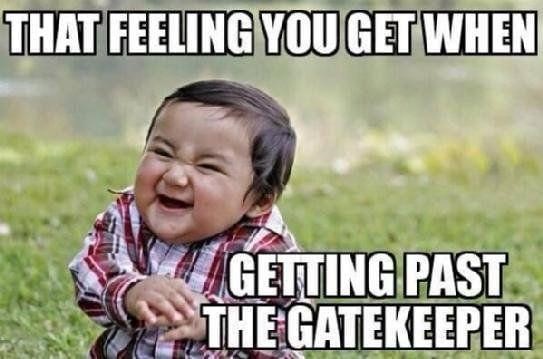
While there are many aspects of the recruiting process that factor into how successful you and your company will be at hiring, one of the most important factors is the relationship built between the recruiters and the hiring managers. Hiring managers can sometimes be viewed as the “gatekeepers” in recruiting because all candidates and issues must go through them. The level of engagement and interaction with the hiring managers plays a large role in determining their response rate and this, in turn, directly corresponds with how successful recruiters will be! In addition, creating such a strong relationship keeps recruiters on the hiring managers’ radar which also results in reduced time to fill.
Often, recruiters set their hiring managers up on a pedestal, handling them with soft and delicate communication. It is more effective, however, for recruiters to view themselves as equal partners. Doing so will create a more mutually beneficial relationship; recruiters will be able to fill more positions and hiring managers will be able to add more employees to their team. As recruiters, it is common to view the hiring managers as the “customers” and fall into the pattern of taking orders and following their lead. Rather than let the hiring managers take charge of the way the recruiting process is ran; it is important to remember that the “customer” is the business or client, as a whole. Recruiters ought to work together, on the same level, with the hiring managers, in order to make the best hires for the company while being the most time-efficient.
It is important to continually follow-up with hiring managers for feedback. Do not worry about “nagging” the hiring manager; sometimes an email can get lost and they simply need a friendly reminder. Be sure to compose yourself professionally and patiently in your follow-up and, most oftentimes, the hiring managers will welcome your friendly reminder. By staying consistent with your correspondence, checking in frequently, you will become a staple in their daily mailbox and plant yourself on their radar.
One thing recruiter’s can do is establish an interviewing/recruiting process that works for all parties involved. It helps to have a designated go-to person for each position so that you know who to submit candidates to, who to request feedback from and who to schedule interviews with at each stage of the process. By doing this, you will be more efficient, and you can prepare candidates more effectively for on-site interviews by providing the names of the interviewer(s). This way the candidate has the option to do some pre-interview research on their interviewers and prepare to meet the team. The more consistent the process is, the more seamless everything will flow, meaning less back and forth between the recruiter and hiring manager to figure out details for the next steps.
Lastly, set expectations and be clear as to the steps you will be taking throughout your recruiting. When you lay the expectations out up front, you avoid miscommunication. If the recruiter states what he/she expects from the partnership and the hiring managers are aware of what is expected of them, it should allow for a smooth flow of recruiting. Without any miscommunication hiccups, recruiters and hiring managers should be able to improve their time to fill. Two main objectives for hiring managers are speed and quality and by establishing key elements and processes at the start of the recruitment cycle, it is more likely that these objectives will be met and the hiring manager will be satisfied with the recruitment efforts. Engaging hiring managers is a great strategy for recruiters who want to improve their time to fill on open positions. Building and maintaining that relationship is a very effective way to help grow a successful business.
By Kristen Coutsouros | People Science Talent Advisor
